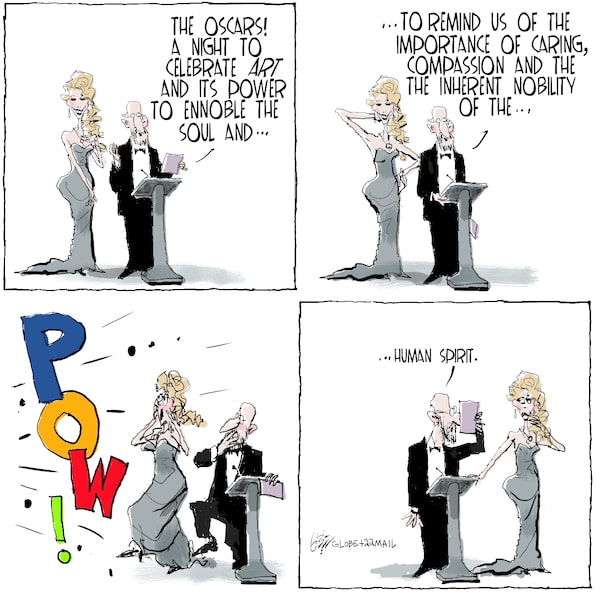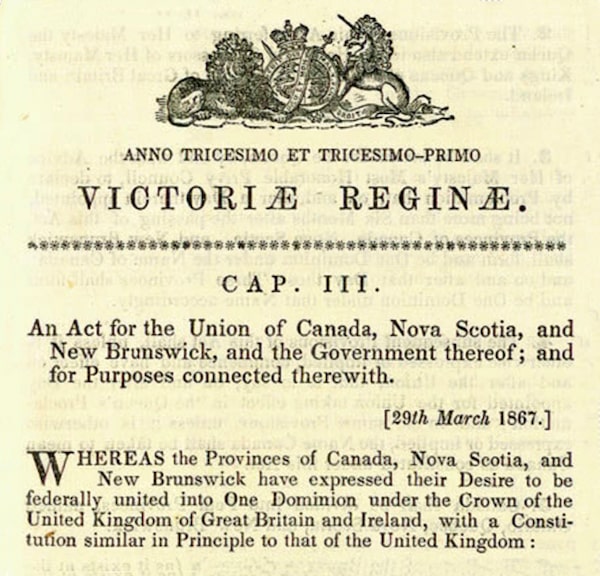Good morning,
Three RCMP officers who were the first on the scene at a mass shooting that terrorized Nova Scotia two years ago testified yesterday that they almost shot the wrong man during the chaotic response to the rampage, which one described as being like a war zone.
The testimony was the first to be given before the Mass Casualty Commission, an independent inquiry into the attack. The federal and provincial governments established the commission after victims’ families criticized police for not being forthcoming with information about the incident.
Police missteps are a central issue for the commission, which is tasked with making recommendations to prevent similar tragedies in the future. The RCMP union fought to keep the officers from testifying, arguing that their appearance at the inquiry would be retraumatizing – a suggestion that deeply angered many of those who lost loved ones.

RCMP officers prepare to take a person into custody at a gas station in Enfield, N.S., Sunday, April 19, 2020.Tim Krochak/The Canadian Press
This is the daily Morning Update newsletter. If you’re reading this on the web, or it was forwarded to you from someone else, you can sign up for Morning Update and more than 20 other Globe newsletters on our newsletter signup page.
Métis and Inuit tell stories of suffering in first Indigenous meetings with Pope Francis
Leaders of Métis and Inuit delegations called on Pope Francis, during and after private meetings with him yesterday, to bring perpetrators of abuse at Canada’s residential schools to justice, saying the Catholic Church must stop shielding those who committed crimes and actively assist in holding them to account.
The two meetings with the Pope – one each for the Métis and Inuit delegations – were the opening acts in a week of talks in Rome between Catholic authorities and Indigenous leaders from Canada. On Thursday, First Nations delegates are scheduled to hold their own private meeting with the Pope, who will then hold a general audience with all three Indigenous groups on Friday.
Speaking after the hour-long meetings, which took place in the Apostolic Library at the Vatican, the Métis and Inuit delegates said the Pope was welcoming, thoughtful and engaged. They emerged convinced he was becoming more aware of Indigenous peoples’ suffering in the era of Catholic-run residential schools. But he did not apologize to them for the abuses.
Kyiv launches online learning for students amid Russian bombardment
Danyil Mykhailiv did something yesterday that should be ordinary for most children but is extraordinary for millions of kids in Ukraine these days: He attended school.
Danyil was one of thousands of children who tapped into classes offered by schools across Kyiv as local officials moved to restart the education system despite continued bombardment by Russia. City leaders said resuming classes was critical in helping children keep up with their studies and cope with the continuing stress of the war.
Running an effective educational program in the midst of a war won’t be easy. An estimated 1.5 million children have left Ukraine since the conflict began, reports UNICEF, and millions more have been displaced internally. Many of those children don’t have access to a laptop or the internet. Teachers, too, have been leaving the country in droves or joining the Territorial Defence Forces, which are largely made up of civilians.
- Follow our live updates
- Canada sending team to International Criminal Court to investigate possible Russian war crimes in Ukraine
- Putin doesn’t appear ready to make compromises ahead of Russia-Ukraine peace talks, U.S. official says
Got a news tip that you’d like us to look into? E-mail us at tips@globeandmail.com Need to share documents securely? Reach out via SecureDrop
ALSO ON OUR RADAR
Ottawa Senators owner Eugene Melnyk dies at 62: The Ottawa Senators announced yesterday that owner Eugene Melnyk has died at the age of 62. The cause of death was not immediately known. “It is with great sadness that the family of Eugene Melnyk and the Ottawa Senators hockey organization announce his passing on March 28, 2022 after an illness he faced with determination and courage,” the team said in a statement.
Canada picks F-35 fighter after 12 year saga: The federal government announced it will buy 88 U.S.-made F-35 fighter jets, the very same warplane the Liberals once said they would never pick. The planes would be the country’s first new fighters in more than three decades.
Researchers are racing to understand risk of long COVID: As COVID-19 cases and hospitalizations start to wane across much of Canada, more urgent attention is being directed at understanding the origins of long COVID, its risk factors and its treatment. Thousands are afflicted across Canada, but for many people even getting a diagnosis can be a challenge: The condition is new and much remains unknown. Some doctors say they feel at a loss for how to help patients, as limited treatment options are available.
Ottawa signals it will bolster scrutiny of sports organizations: The federal government is planning more scrutiny of Canada’s national sport organizations, amid a growing number of allegations being made by athletes about abuse and maltreatment within their ranks.
Will Smith apologizes for slapping Chris Rock during Oscars: The day after slapping Chris Rock on the Oscars stage and upending the 94th Academy Awards, Will Smith issued an apology to the comedian, to the academy and to viewers at home, saying he was “out of line” and that his actions are “not indicative of the man I want to be.”
- Barry Hertz: Will Smith’s Oscars smack against Chris Rock crystallizes Hollywood’s descent into chaos
- Johanna Schneller: Will Smith’s slap of Chris Rock shows toxic masculinity is still alive under Hollywood’s glossy sheen
MORNING MARKETS
Global markets veered in different directions on Tuesday, with shares climbing to five-week highs, recession warnings growing in the government bond markets and Japan’s yen headed for its worst month since 2016. Europe’s main bourses made strong opening gains, taking cues from Asia overnight after the Bank of Japan had defended its vast stimulus program, and as warring Russia and Ukraine held their first face-to-face talks in more than two weeks in Turkey. The Canadian dollar was trading at 80.13 US cents.
WHAT EVERYONE’S TALKING ABOUT
Rob Carrick: “Politicians have done little to fix the problem of housing affordability. Might someone instead exploit this issue to win the support of those shut out of the market?”
Editorial: “Soccer – or basketball – is not about to eclipse hockey at the fore of the national mythos. But our narrow, one-sport-defines-us-all identity is dissolving and becoming something bigger, broader, more exciting and interesting. Canada now welcomes more than 400,000 immigrants a year, an escalating record pace. Our sense of what our country is and can be expands by the day.”
TODAY’S EDITORIAL CARTOON

Brian Gable/The Globe and Mail
LIVING BETTER
What the research says about intermittent fasting and weight loss
Intermittent fasting, an eating pattern that cycles between periods of fasting and eating, has become a popular way to lose weight. There’s no need to count calories, track macros or ditch entire food groups. But does it work? Here’s what to know about this eating regimen, plus dietary advice if you’re going to follow it.
MOMENT IN TIME: MARCH 29, 1867

The Constitution Act, (BNA Act) 1867. An act for the union of Canada, Nova Scotia, and New Brunswick, and the government thereof, and for purposes connected therewith, March 29, 1867.The National Archives [UK]
BNA Act receives royal assent
Even as a legal document, the British North America Act of 1867 is a bit dry. In the first 200 words, “whereas” is used four times; “thereof,” “therein,” “therewith” and “therefore” once each. But it’s not merely the wording of this British legislation – passed by the British Parliament and House of Lords and, on this day in 1867, given royal assent by Queen Victoria – that is significant; it’s the purpose. The act created a constitutional entity, the Dominion of Canada, the first independent dominion in the British Empire. The initial bill, under which Mother England would shed one of her colonies, received broad support from all British political parties and passed six weeks after its first reading. The legislation, which came into effect on July 1, 1867, united the three separate territories of Canada, Nova Scotia and New Brunswick. It set out Canada’s structure of government, dividing powers among the federal government and the provinces. The BNA Act, 1867 was renamed the Constitution Act, 1867 when, 115 years after Queen Victoria gave the initial act her royal imprimatur, her great-great-granddaughter – Canada’s current Queen – signed the country’s repatriated, new and 100-per-cent homegrown Canadian Constitution. Philip King
Read today's horoscopes. Enjoy today's puzzles.
If you’d like to receive this newsletter by e-mail every weekday morning, go here to sign up. If you have any feedback, send us a note.